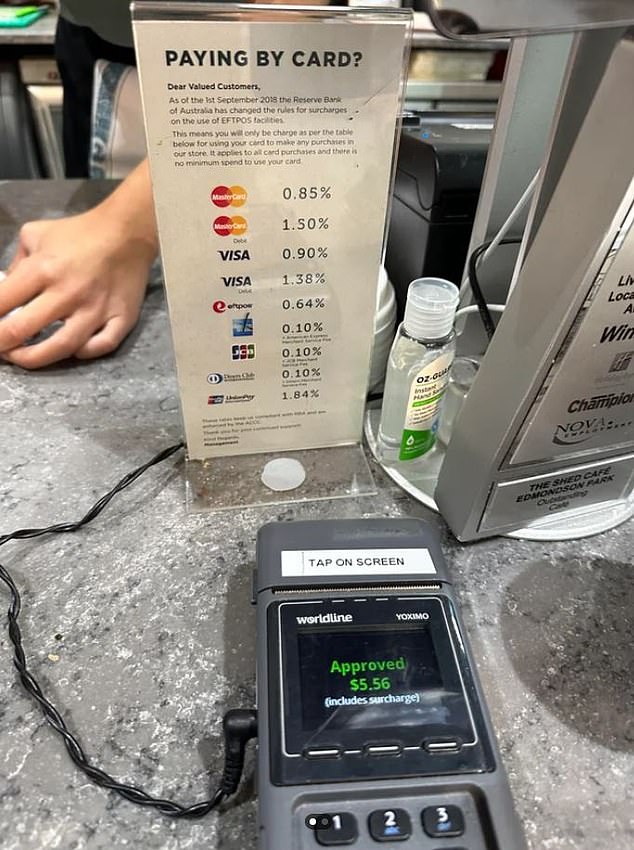Anthony Albanese set to ban card surcharges for cashless payments: ‘Consumers shouldn’t be punished for using cards’
Card surcharges will come under scrutiny in a crackdown aimed at cutting costs for small businesses and customers, as the federal government threatens a complete ban on debit card fees.
The Australian Competition and Consumer Commission will receive an additional $2.1 million to investigate charges on debit and credit cards.
With Labor set to go to the polls next year amid a cost-of-living crisis, the government has announced its latest measure to ease the pressure on struggling households.
Treasurer Jim Chalmers said the government was prepared to ban surcharges on debit cards from early 2026, pending further consultation by the Reserve Bank of Australia.
“Consumers should not be penalized for using cards or digital payments, and at the same time, small businesses should not have to pay high fees just to get paid,” he said.
‘We are prepared to ban surcharges on debit cards, subject to further work from the Reserve Bank and safeguards to ensure small businesses and consumers can both benefit from lower costs.’
The RBA is responsible for regulating the payment system and conducts an investigation into the fees and charges for card payments.
Months ago, National Australia Bank boss Andrew Irvine branded surcharges on card purchases as outdated and “outrageous”.
He said surcharges may have been justified 20 years ago, and that Australia was experiencing a “two-speed economy”.
Prime Minister Anthony Albanese said the government was waiting for the central bank to complete its work.
“My government’s first priority is to reduce the cost of living for households and businesses, and this is another step to protect Australians,” he said.
Prime Minister Anthony Albanese said his government’s first priority is lowering the cost of living

Card surcharges will come under scrutiny as part of a crackdown aimed at cutting costs for small businesses and customers
Dr. Chalmers said the crackdown aimed to get a better deal for people while promoting a more competitive payment system.
“Consumers should not be penalized for using cards or digital payments, and at the same time, small businesses should not have to pay high fees just to get paid,” he said.
